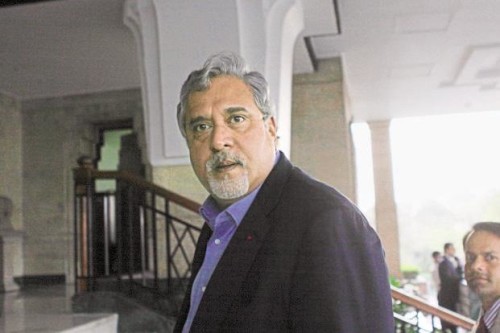The Enforcement Directorate (ED) on Wednesday urged a Delhi court to recall its earlier order granting permanent exemption from personal appearance to United Breweries Group chairman Vijay Mallya in a case for allegedly evading summons issued by the ED in connection with purported violation of foreign exchange rules.
 Chief metropolitan magistrate Sumit Dass, who was hearing final arguments in the case, was told by the ED’s prosecutor N.K. Matta that he would file an appropriate application in this regard within a week.
Chief metropolitan magistrate Sumit Dass, who was hearing final arguments in the case, was told by the ED’s prosecutor N.K. Matta that he would file an appropriate application in this regard within a week.
The court posted the matter for further hearing on 20 May.
During the hearing, Matta argued that the court should recall its December 2000 order by which Mallya was granted permanent exemption from personal appearance as a Prevention of Money Laundering Act court in Mumbai recently issued an open-ended warrant against Mallya, in connection with an alleged money laundering case.
He said the exemption order was passed by the court and the present status is that Mallya has gone abroad and in such situation, he will file an application seeking cancellation of exemption granted to Mallya.
Senior advocate Ramesh Gupta, who appeared for Mallya, said his client was earlier granted exemption from personal appearance on 20 December 2000 and he be exempted for Wednesday.
In the present case, the ED alleged that Mallya violated the provisions of the Foreign Exchange Regulation Act (FERA) in arranging funds to advertise his company’s liquor products abroad.
The ED claimed that Mallya was summoned on four occasions for questioning in connection with a contract signed in December 1995 with London-based firm Benetton Formula Ltd for promotion of the Kingfisher brand abroad.
When Mallya failed to appear before the ED in response to the summons, a complaint was filed on 8 March 2000 before a court and later on, a charge was framed against him under section 56 of FERA.
According to the ED, Mallya allegedly paid $200,000 to the British firm for displaying the Kingfisher logo in Formula One World Championships in London and some European countries in 1996, 1997 and 1998.
The agency claimed that the money was allegedly paid without prior approval from the Reserve Bank of India in violation of FERA norms.

